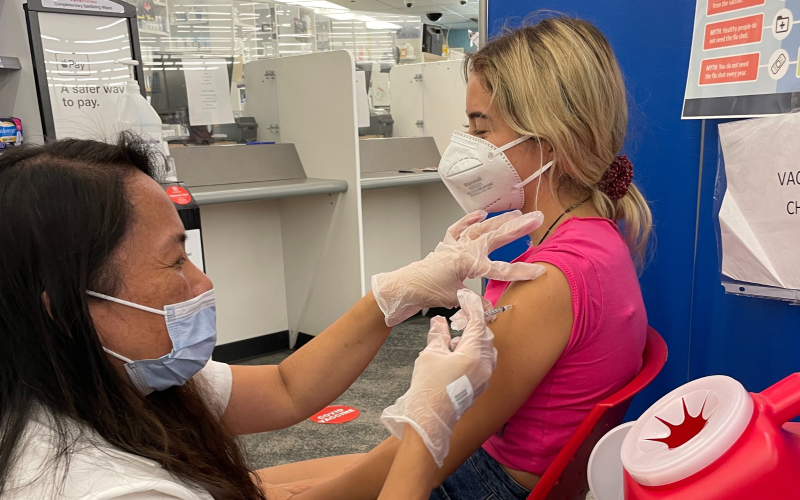Political Affiliation is the Primary Determinant of Vaccine Confidence in Study of Parents’ Attitudes about Vaccines

ALBANY, N. Y. (October 4, 2022) – Jennifer Manganello and MPH graduate Haley Cowlin recently conducted a study that examines the link between parents’ attitudes towards vaccination and social media use. They looked at a range of demographics, including living in a rural, urban, or suburban location, to see if any would influence results. Their main finding: political affiliation played a significant role in vaccine confidence and uptake, regardless of social media use or what location they were in.
“Throughout the pandemic, we saw how social media can spread misinformation and disinformation, but it still remains a user-friendly way to provide accurate and positive vaccine information—particularly for parents,” explains Manganello. “This makes it very important to better understand what social media platforms parents are using and what factors influence attitudes towards vaccines so that messages can be placed where parents will see them and tailored to help parents make informed decisions.”
The study asked participants about two different vaccines— the HPV vaccine, introduced in 2006, and the COVID-19 vaccine, introduced in 2020. They also asked questions about knowledge, attitudes, and behaviors for vaccination, where they received their information about vaccines, and their social media use.
The researchers also wanted to see if the participants’ opinions of the COVID-19 vaccine would affect their willingness to vaccinate their children for HPV, a vaccine that is listed on the CDC’s schedule of routine childhood vaccinations but has had lower uptake than other vaccines.
“Even before the COVID-19 pandemic vaccine hesitancy had been increasing,” says Manganello. “In fact, it was identified by the World Health Organization as a global health threat in 2019. Examining factors that influence vaccine attitudes and behaviors including social media use and information sources, is critical to help develop more effective communication strategies not just for COVID-19 vaccination but routine childhood vaccinations as well.”
The study relied on survey data from 452 parents from urban, suburban, and rural areas and included basic questions like “Has your child started the HPV/COVID-19 vaccine series?” and “How likely are you to get your child the COVID-19 vaccine once it is available for children under 12?” Information such as sex, race/ethnicity, education, political affiliation, employment, marital status, household income, and self-rated religiosity was also collected. The sample was diverse in terms of community type and political affiliation, with roughly even numbers of respondents identifying as Democrat, Republican, or Independent.
When asked about social media habits, the participating parents preferred Facebook by a wide margin—76 percent, followed by YouTube (55 percent) and Instagram (43 percent). Community type (rural, urban, suburban) did not make a significant difference in which platforms were preferred, although urban parents were more likely to use a wider range of platforms. The only demographic characteristic that correlated strongly to vaccine attitude was political affiliation. Parents who reported being a Democrat had greater confidence in vaccines and a higher likelihood of vaccinating their children than parents who reported being Republican. Factors believed to be protective from vaccine hesitancy, like seeking information from a trusted health care provider, were not associated with increased vaccine confidence in this study. This runs counter to research conducted prior to the COVID-19 pandemic.
“More research is needed to better understand how to tailor messages on social media to resonate with parents who have different political affiliations and to disseminate messages through trusted influencers to encourage vaccine use,” Manganello says. “Despite widespread misinformation online, social media can still be a powerful vehicle for spreading accurate health information when used effectively.”
The full report, developed with colleagues from the University of Arkansas, is published in the Journal of Behavioral Medicine.


